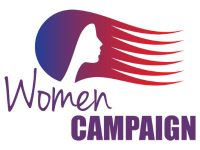Fundraising plays a critical role in every political campaign. Although online crowdfunding and small-dollar donations are becoming increasingly popular, traditional donor meetings remain a significant part of the fundraising process. If you’re an aspiring candidate preparing for your first donor meeting, here are key aspects you should know:
1. Know Your Donor
Preparation is key. Before the meeting, spend time researching your potential donor. What are their interests and political leanings? What are their past political contributions? Knowing your donor’s background and perspectives allows you to tailor your message effectively, resonate with them, and avoid potential missteps.
2. Know Your Message
Effective communication is crucial. Be able to articulate your campaign message succinctly and convincingly. What sets you apart from other candidates? Why are you running for office? Link your policies with the donor’s interests or values. Show them why supporting you is an investment in the issues they care about.
3. Know Your Numbers
Transparency fosters trust. Be ready to discuss your campaign’s financial goals. How much are you aiming to raise, and what’s your plan for spending the funds? Being specific about your budget and aligning it with your campaign’s strategy demonstrates your commitment to managing the resources effectively and efficiently.
4. Know Your District and Path to Victory
Knowledge is power. Understand the demographics, voting history, and key issues in your district. Providing an informed overview of your constituency showcases your knowledge of the people you aim to represent. Also, articulate your strategic “path to victory”. Outlining your campaign strategy, voter outreach plans, and targeted messaging demonstrates your commitment to winning and your understanding of your district.
5. Know Your Boundaries
Integrity matters. While it’s important to align your message with the donor’s interests, it’s equally crucial to uphold your values and commitments to your constituents. Stay true to your campaign’s core principles. Demonstrating that you’re not willing to compromise your values for funding can actually build respect and credibility with donors.
Bonus – Know Your Follow-Up Strategy
Relationship-building doesn’t end with the meeting. Be sure to send a thank you note expressing appreciation for their time. If they’ve committed to a donation, provide clear instructions on how to proceed. If they haven’t, don’t be discouraged. Maintain the relationship, keep them updated on your campaign, and they might decide to contribute later.
Donor meetings might seem daunting, but with preparation, they become opportunities. They allow you to secure funding, refine your campaign message, expand your network, and gain valuable insights. Treat each meeting as a stepping stone in your political journey. Each step, including donor meetings, brings you closer to achieving your political aspirations.







